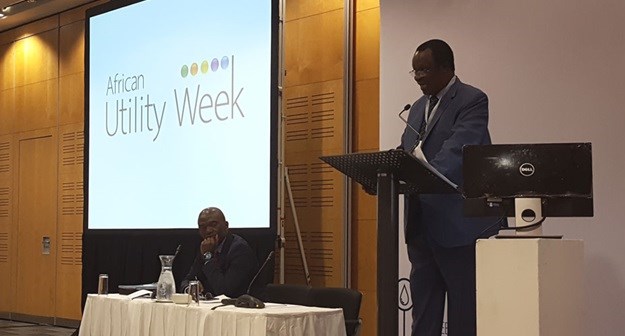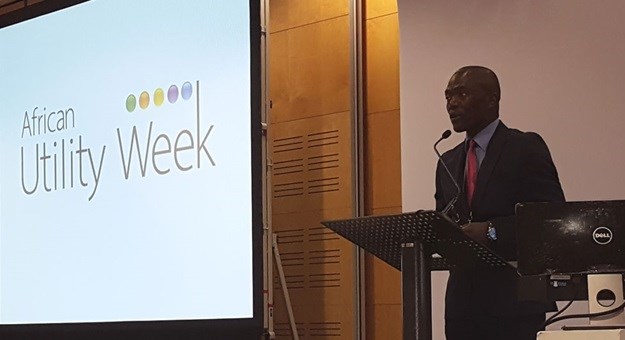
Top stories




ESG & Sustainability#AGES2026: How to back Africa's next-gen green and blue entrepreneurs
Maroefah Smith 26 Feb 2026

ICTVodafone teams up with Amazon's satellites to connect masts in Europe and Africa
Paul Sandle 1 day

The minister said that as an essential resource that cannot be replaced, water must be managed appropriately. He described some of the water-related challenges experienced in Uganda and how various spatial and temporal variables render certain areas of the country water-stressed over long periods of time.

"The country has experienced increasing episodes of dry and hot spells over the last decades and the spread of areas affected have been increasing, where some areas have experienced water shortages, and we have had to deal with them through water rationing," he said.
"Water scarcity is a real crisis, therefore there is need for actors at country, regional and international level to initiate climate resilient initiatives through innovative water management practices and infrastructure development aimed at mitigating negative impacts of climate change on water resources."
Cheptoris believes that in order to address water scarcity and achieve sustainable development, collective and collaborative partnerships are needed, with particular efforts involving social mobilisation, innovation, knowledge-sharing, as well as active partnerships among all the various stakeholders.
Paul Yilla, a research scholar at the International Institute for Applied Systems Analysis in Austria, and chair of the session, delved into the water-energy-food nexus and how silo-based management in the water sector needs to be broken down and discouraged.
“When you talk about the nexus, it goes beyond just water, energy and food and could include aspects of population growth, environmental pressures and geopolitical conflicts and how these affect the trade of these resources and the security of these resources within borders,” he said.

Looking beyond borders, many African countries are net importers of food and energy, and even in the case of water, examining how much water goes into the production of commodities, countries are either net exporters or net importers. Policy decisions on these resources have to be made within country borders but influence comes from outside these borders, explained Yilla.
Effective management of shared water resources is important for water-stressed regions in Africa. Yilla used the example of the Ruzizi River where cooperation between Rwanda, the Democratic Republic of Congo and Burundi has seen the development and management of hydroelectric dams, all three of which share in the socioeconomic benefits.
In his presentation, Yilla listed the pillars for transboundary water cooperation, elements of which are found in the tri-national agreement in the Ruzizi project:
"Most of the time, when people talk about transboundary water management, they talk about conflicts,” said Yilla, “but there is a lot of potential to move away from conflict to cooperation potential.” He concluded his discussion by pointing out that there is far more cooperation around shared water basins than there is conflict, even in history.
The 2017 African Utility Week took place at the CTICC in Cape Town, 16-18 May. For more info, go to www.african-utility-week.com.
